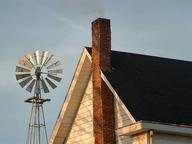Quiz Answer Key and Fun Facts
1. Quakers refer to themselves as "the peculiar people". That seems odd. "Peculiar" is drawn from the Bible. Think of a word often paired with religion, a synonym for intensity or passion. What do they mean by "peculiar"?
2. The Englishman George Fox started the Society of Friends, known as Quakers, in 1648. Regarding the role of women, the Friends took what position, unusual for the time? Their position would be unusual for many religions today, in fact.
3. Quakers, in particular female Quakers, were instrumental in instituting what 1920 law for American women? (Hint: non-Quakers Elizabeth Cady Stanton and Frederick Douglass were involved.)
4. This famous Quaker, the son of a British Vice-Admiral, helped conquer religious persecution in England. He was known as a champion of justice after the famous Trial of 1670, which helped bring about civil and religious liberty in England. Who was he?
5. Quakers believe strongly that as Christians they should participate in only what kind of war?
6. As the New World was explored and settled, Quakers refused to take up arms against a mistrusted and persecuted group of people. They instead welcomed this group, traded with them, learned and respected their ways, and often prevented violence. What group of people did Quakers befriend?
7. In September 2010 the US FBI raided animal rights groups, Catholic Workers, environmentalists and anti-war protesters, as well as the Society of Friends. The FBI justified this by saying these people were on what list?
8. On the question of slavery in the US and Britain, did Quakers own slaves?
9. Elizabeth Fry, born 1780 in England, daughter of successful banking families and long time Quakers, devoted her life to the betterment of what institution? Hint: many a Quaker had spent days and nights in these places.
10. In 1975 a New York prison working with teen gangs asked Quakers for help. The Quakers taught at-risk teens something very familiar to Friends, but entirely new to teen gangs. What did the Friends introduce?
Source: Author
Godwit
This quiz was reviewed by FunTrivia editor
CellarDoor before going online.
Any errors found in FunTrivia content are routinely corrected through our feedback system.

